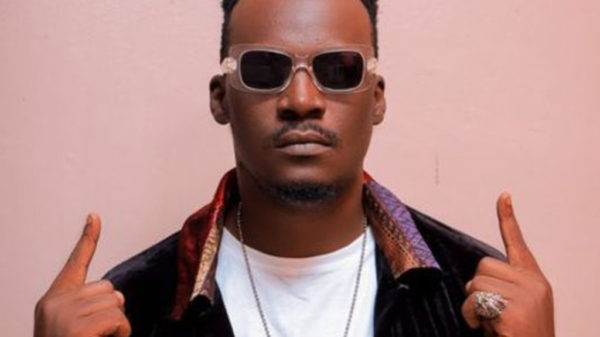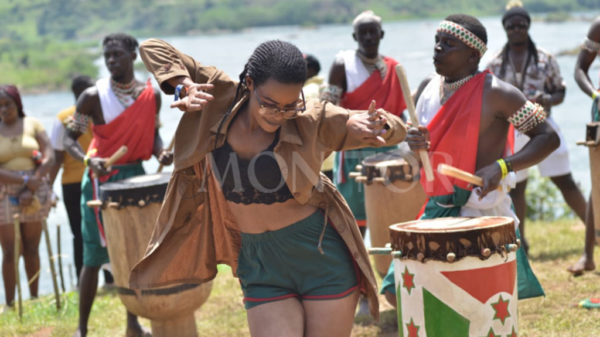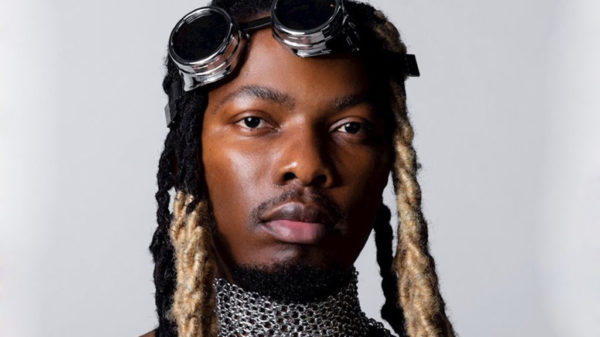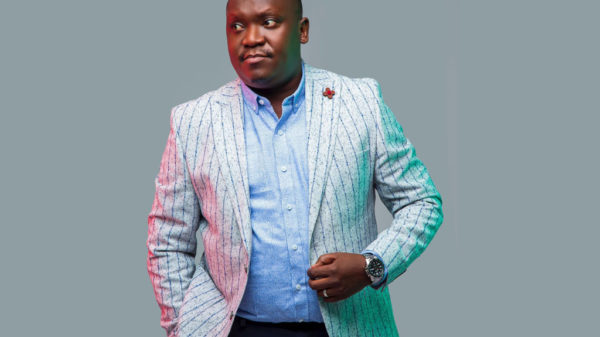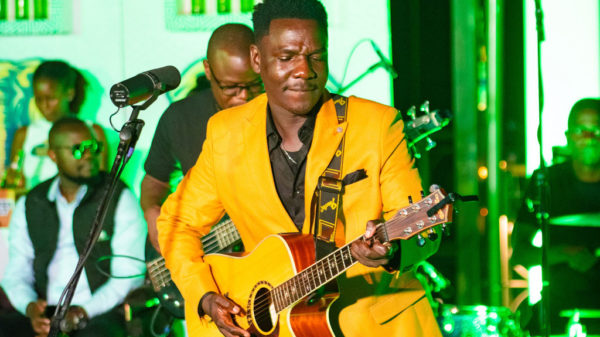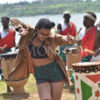PREACHING THROUGH MUSIC : Church or night club, secular or religious concert, you will find Exodus preaching the Lord’s word via what he does best – music. This has earned him criticism as some people think he is more secular than Christian. Edgar R. Batte talked to him about this and more .
We know you as Exodus, what is your birth name?
I was born George Timothy Lubega.
Who are you?
I am a gospel artiste, very simple and down-to-earth.
Who do people say you are?
A star, celebrity, an inspiration, a friend, an enemy, a humble person and some take me for a show off.
Are you a show off?
I am not.What do you think?
May be they call you a show-off as a misinterpretation of your flashy videos…
I love to be different. The world respects you for the difference you make not for the similarity you try to be.
Is your difference also defined by your lifestyle?
Yeah, to a greater extent.
How is that?
I am a Christian first of all, a strong Jesus fanatic who loves excellence and to a greater extent that is depicted in how I live my daily walk of life and I am not afraid to be anywhere at any given time spreading the gospel.
I have met you a couple of times in nightclubs, is it one of the places where you spread your gospel?
Yeah. I am that gospel artiste that you are going to find outside the four corners of the church and I am proud to be doing that because when Jesus lived he said “go ye into the whole world”, not just the four corners of what we call church.
Don’t you think that people misjudge you for being so secular?
Even Jesus was misjudged. The most important thing is doing what God called you to do. That is where you are more relevant. The Bible says obedience is far greater that sacrifice so, it is a choice to do what people think you should be doing or what God has called you to do.
What did God call you to do?
God called me to preach the gospel to the people who I once was like.
Does that have to do with that song titled Ganja man?Did you actually take the ganja?
That song is my life’s true story. I lost my mother when I was 10 years old. That was in 1994. I went to live with my father who had other women and I hit the challenge of a young boy growing up with step mothers, which I could no longer stand in 1997. I could not take it anymore. Many things happened we won’t go through them all. I left home and began living life as street child. As a result, I began taking weed, alcohol and sniffing paraffin till 2001 when I saw the light. What led you to see the light? Being on drugs for more than five years. I did drugs thinking they would help me get over the pain that I experienced as a parentless kid but year after year I was drawn more into sorrow and life’s complications which I grew tired of in 2001.
How did this happen?What changed you to the point of making the decision to start living life another way?
When I got into church for the very first time there was a love and life I hadn’t known. It was a different life. Life on the streets was individualistic, everyone worried only about themselves and thinking of how to steal to survive and feed. It was a dangerous life, always in fear of tomorrow.
What particularly led you to church?
After the years on the streets, many things happened to me. I just couldn’t take it anymore. Things were going through my mind.
Which church did you go to? Pastor Robert Kayanja’s Miracle Centre Cathedral.
How did you get there?
A friend of mine, Daniel Kimuli, that I lived with in Kiyaye zone in Nankulabye, took me there. He saw what I was going through and asked me to try church though he didn’t go himself. He directed me and on that Sunday I went to Miracle Centre and the atmosphere, the love, the family, life setting, the word of God, impacted on me. I had never felt like that before and I never turned back.
Is this where you discovered the artiste in you?
Yes but never in my life had I ever dreamt that I would sing. I grew up seeing planes in the sky with peers and told them I wanted to become a pilot or doctor.
When did you realise the artiste in you?
When I got saved, I got a place to stay and I joined the choir. I didn’t know how to sing but knew how to dance. I wanted to know this God I heard everyone talk about and who became my father, my mother, my brother, my sister and my friend in all the time of distress. Being in the choir, I developed a heart for worship. In 2004, I discovered that I could sing because as time went by I would sing to the music of Donnie McClarkin, Deitrick Hudon, Kirk Franlin and of course, my very good friend Papa San.
When did you conceive and record your first song?
Well, before 2004, with the help of Isaac Rucci we formed a trio called Sauti, with which I did an East African tour through to 2007. But while in Nairobi, God told me to pursue a solo ministry and he told me he wanted me to go back home. He told me he wanted me to sing about my pain in relation to what I went through but also to glorify him. He told me he would favour me.
What happened then?
In 2008, I did 40 days of fasting because I was not sure of the thought I had got. After my fasting around April, he gave me a song, “I once was a ganja man, a liquor man and a bitter man, changed and no more ganja man, not bitter but a preacher man…” which was my very first song. I recorded it in 2008, which to my surprise, became a big song both as a gospel and secular song. Since then, my career has been climbing up the ladder, doors opening in places I never imagined and doing what I never thought I would do in my life- holding a microphone on stage and inspiring many in what we call music.
What style of music do you do?
I am that artiste you can’t put in a box. You will find me doing raga today and then afro-beat songs like Igwe …I am a worshipper
Talking of Igwe, it must have cost you a fortune to shoot. How much did you spend on it?
$15,000
Is it true that a certain German lady sponsored to shoot this video? Tabloids interest me. Well, we understand they write to make money but why not find out the truth before they write?
What’s the truth?
I have done tours, world tours. I am very ambitious and from music I have made some money. I am a social worker. I work with the biggest charity organisation in Northern Uganda taking care of 10,000 returnees, to which I have an office as their musical ambassador and creative arts director. She is not even Germany, she is Australian, a 67-year-old, who adopted me in 2008 and became the mother I lost in 1994 when I was 10 years of age. For more information, I am married to a Muganda woman whose name is Brenda Mwanje. Anything else they want to know?
What is the name of this charity organisation?
IGF- Irene Glesson Foundation in Kitgum, far north of Uganda. How did you link with Gleeson? From 2001, she used to preach at Miracle Centre. I have known her for about eight years as a mother to many hurting children, but in 2008 my pastor, Robert Kayanja, had a crusade in Kitgum and I happened to sing. My late mother, Doreen Lamwaka, come from Onyama in Gulu.
You’re now famous and good looking, how do you deal with girls who would like to have affairs with you?
There are some things in life you cannot go against. When you become popular, you get lovers and haters but what is your main reason behind matters. Mine is to deliver my generation.
Do you have a music album yet?
I am working on my very first album. I just have a few hit singles. I am glad to be one of those artistes whose music has appeal yet I have no album at the moment. What’s your last word… God is so amazing for reversing a wretch like me into popularity. I come for the least of the least where I was called poor but today it is a different story. If He did that for me, He can do it for anybody who trusts and believes that there’s a God somewhere who changes lives.































